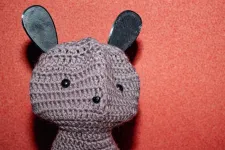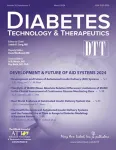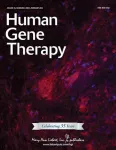(Press-News.org) AI holds the potential to revolutionize healthcare, but it also brings with it a significant challenge: bias. For instance, a dermatologist might use an AI-driven system to help identify suspicious moles. But what if the machine learning model was trained primarily on image data from lighter skin tones, and misses a common form of skin cancer on a darker-skinned patient?
This is a real-world problem. In 2021, researchers found that free image databases that could be used to train AI systems to diagnose skin cancer contain very few images of people with darker skin. It turns out, AI is only as good as its data, and biased data can lead to serious outcomes, including unnecessary surgery and even missing treatable cancers.
In a new paper published at the AAAI Conference on Artificial Intelligence this week, USC computer science researchers propose a novel approach to mitigate bias in machine learning model training, specifically in image generation.
The researchers used a family of algorithms, called “quality-diversity algorithms” or QD algorithms, to create diverse synthetic datasets that can strategically “plug the gaps” in real-world training data.
The paper, titled “Quality-Diversity Generative Sampling for Learning with Synthetic Data,” was lead-authored by Allen Chang, a senior double majoring in computer science and applied math, with co-authors doctoral student Matthew Fontaine, USC computer science Stefanos Nikolaidis, Fluor Early Career Chair in Engineering and Assistant Professor of Computer Science, Maja Matarić, Chan Soon-Shiong Chair and Distinguished Professor of Computer Science, Neuroscience, and Pediatrics, and Massachusetts Institute of Technology doctoral graduate Serena Booth.
“I think it is our responsibility as computer scientists to better protect all communities, including minority or less frequent groups, in the systems we design,” said Chang. “We hope that quality-diversity optimization can help to generate fair synthetic data for broad impacts in medical applications and other types of AI systems.”
Increasing fairness
While generative AI models have been used to create synthetic data in the past, “there’s a danger of producing biased data, which can further bias downstream models, creating a vicious cycle,” said Chang.
Quality diversity algorithms, on the other hand, are typically used to generate diverse solutions to a problem, for instance, helping robots explore unknown environments, or generating game levels in a video game. In this case, the algorithms were put to work in a new way: to solve the problem of creating diverse synthetic datasets.
Using this method, the team was able to generate a diverse dataset of around 50,000 images in 17 hours, around 20 times more efficiently than traditional methods of “rejection sampling,” said Chang. The team tested the dataset on up to four measures of diversity—skin tone, gender presentation, age, and hair length.
“We found that training data produced with our method has the potential to increase fairness in the machine learning model, increasing accuracy on faces with darker skin tones, while maintaining accuracy from training on additional data,” said Chang.
“This is a promising direction for augmenting models with bias-aware sampling, which we hope can help AI systems perform accurately for all users.”
Notably, the method increases the representation of intersectional groups—a term for groups with multiple identities—in the data. For instance, people who have both dark skin tones and wear eyeglasses, which would be especially limited traits in traditional real-world datasets.
"While there has been previous work on leveraging QD algorithms to generate diverse content, we show for the first time that generative models can use QD to repair biased classifiers," said Nikolaidis. "They do this by iteratively generating and rebalancing content across user-specified features, using the newly balanced content to improve classifier fairness. This work is a first step in the direction of enabling biased models to 'self-repair'' by iteratively generating and retraining on synthetic data."
END
Diversifying data to beat bias
USC researchers propose a novel approach to mitigate bias in machine learning model training
2024-02-23
ELSE PRESS RELEASES FROM THIS DATE:
Increased use of Paxlovid could cut hospitalizations, deaths and costs
2024-02-23
Increased use of Paxlovid, the antiviral drug used to treat COVID-19, could prevent hundreds of thousands of hospitalizations and save tens of billions of dollars a year, according to a new epidemiological model published by researchers at The University of Texas at Austin. In fact, epidemiologists found that treating even 20% of symptomatic cases would save lives and improve public health.
A 2023 National Institutes of Health study found that only about 15% of high-risk patients take Paxlovid when infected with COVID-19. Using a multiscale mathematical model based on ...
How to build your own robot friend: Making AI education more accessible
2024-02-23
From smart virtual assistants and self-driving cars to digital health and fraud prevention systems, AI technology is transforming almost every aspect of our daily lives—and education is no different. For all its promise, the rise of AI, like any new technology, raises some pressing ethical and equity questions.
How can we ensure that such a powerful tool can be accessed by all students regardless of background?
Inspired by this call to action, USC researchers have created a low-cost, accessible learning kit to help college and high school students build their own “robot friend.” Students can personalize the robot’s ...
Advances and future development of automated insulin delivery systems
2024-02-23
A special 13-article supplement to the peer-reviewed journal Diabetes Technology & Therapeutics (DTT) examines the “Development and Future of Automated Insulin Delivery (AID) Systems. Click here to read the supplement now.
Included in the supplement is the article titled “A Peek Under the Hood: Explaining the MiniMed™ 780G Algorithm with Meal Detection™ Technology", by Benyamin Grosman, PhD and his Medtronic algorithm team with co-authors Ohad Cohen, MD, and Robert Vigersky, MD, Chief Medical Officer at Medtronic. James Thrasher, MD “Early ...
Strategic grazing could boost conservation of ‘near-threatened’ sage-grouse
2024-02-23
RENO, Nev. – A multi-agency study, spearheaded by researchers from the University of Nevada, Reno’s College of Agriculture, Biotechnology & Natural Resources and the U.S. Department of Agriculture, underscores the impacts of strategic cattle grazing, particularly on restoring the declining population of the greater sage-grouse bird, a keystone species in the Great Basin region.
Amidst ongoing decline, the U.S. Fish and Wildlife Service acted by listing the sage-grouse for protection under the Endangered Species Act in 2011. This move prompted the Bureau of Land Management to develop a federal conservation plan for the species ...
Complement system response to AAV vector gene therapy
2024-02-23
Recent clinical trials utilizing high doses of adeno-associated virus (AAV) vectors have highlighted a new challenge to AAV gene transfer – activation of the complement system. A new article in the peer-reviewed journal Human Gene Therapy describes how a convergence of AAV-specific, environmental, and patient-specific factors shaping complement responses likely contribute to differential outcomes seen in clinical trials. Click here to read the article now.
Complement responses may contribute to priming of the adaptive immune system or serious adverse events ...
Study suggests people in urban areas with more green space have better mental health
2024-02-23
By Ann Kellett, Texas A&M University School of Public Health
A new study from the Texas A&M University School of Public Health suggests that city dwellers who have more exposure to urban green spaces require fewer mental health services.
The study, published in the International Journal of Environmental Research and Public Health, was conducted by Jay Maddock, Ph.D., Regents Professor of environmental and occupational health at Texas A&M, and colleagues from the Center ...
Zinc discovery holds promise for people with cystic fibrosis
2024-02-23
University of Queensland researchers have identified an opportunity to reduce infections in people living with cystic fibrosis.
Professor Matt Sweet, Dr Kaustav Das Gupta and Dr James Curson from UQ’s Institute for Molecular Bioscience have discovered a fault in the bacteria-killing function of immune cells in people with CF and a potential way to get around it.
CF is a chronic disease in which defects in the CFTR (cystic fibrosis transmembrane conductance regulator) channel cause a build-up of mucus in the lungs, airways and digestive system, leading to ...
Study finds black children in UK at four times greater risk of complications following emergency appendicitis surgery compared with white children
2024-02-23
New research published in Anaesthesia (the journal of the Association of Anaesthetists) shows that for children undergoing emergency surgery for appendicitis in the UK, black children had a four times greater risk of postoperative complications compared with white children. The study was led by Dr Amaki Sogbodjor, from Great Ormond Street Hospital and University College London (UCL), and Professor Ramani Moonesinghe, UCL Division of Surgery and Interventional Science, London, UK and Director, Central London National ...
Webb finds evidence for neutron star at heart of young supernova remnant
2024-02-22
NASA’s James Webb Space Telescope has found the best evidence yet for emission from a neutron star at the site of a recently observed supernova. The supernova, known as SN 1987A, was a core-collapse supernova, meaning the compacted remains at its core formed either a neutron star or a black hole. Evidence for such a compact object has long been sought, and while indirect evidence for the presence of a neutron star has previously been found, this is the first time that the effects of high-energy ...
Study finds guided parent-child discussions are effective at addressing subtle racism
2024-02-22
Study finds guided parent-child discussions are effective at addressing subtle racism
When parents discuss racism with their children, negative biases toward Black people are significantly reduced in both parent and child
EVANSTON, Ill. --- Experts have long pointed out the need for white parents to have conversations that directly address racism with their children to reduce racial bias. But many parents fail to have these crucial discussions.
Psychology researchers at Northwestern University have published ...
LAST 30 PRESS RELEASES:
Children born with upper limb difference show the incredible adaptability of the young brain
How bacteria can reclaim lost energy, nutrients, and clean water from wastewater
Fast-paced lives demand faster vision: ecology shapes how “quickly” animals see time
Global warming and heat stress risk close in on the Tour de France
New technology reveals hidden DNA scaffolding built before life ‘switches on’
New study reveals early healthy eating shapes lifelong brain health
Trashing cancer’s ‘undruggable’ proteins
Industrial research labs were invented in Europe but made the U.S. a tech superpower
Enzymes work as Maxwell's demon by using memory stored as motion
Methane’s missing emissions: The underestimated impact of small sources
Beating cancer by eating cancer
How sleep disruption impairs social memory: Oxytocin circuits reveal mechanisms and therapeutic opportunities
Natural compound from pomegranate leaves disrupts disease-causing amyloid
A depression treatment that once took eight weeks may work just as well in one
New study calls for personalized, tiered approach to postpartum care
The hidden breath of cities: Why we need to look closer at public fountains
Rewetting peatlands could unlock more effective carbon removal using biochar
Microplastics discovered in prostate tumors
ACES marks 150 years of the Morrow Plots, our nation's oldest research field
Physicists open door to future, hyper-efficient ‘orbitronic’ devices
$80 million supports research into exceptional longevity
Why the planet doesn’t dry out together: scientists solve a global climate puzzle
Global greening: The Earth’s green wave is shifting
You don't need to be very altruistic to stop an epidemic
Signs on Stone Age objects: Precursor to written language dates back 40,000 years
MIT study reveals climatic fingerprints of wildfires and volcanic eruptions
A shift from the sandlot to the travel team for youth sports
Hair-width LEDs could replace lasers
The hidden infections that refuse to go away: how household practices can stop deadly diseases
Ochsner MD Anderson uses groundbreaking TIL therapy to treat advanced melanoma in adults
[Press-News.org] Diversifying data to beat biasUSC researchers propose a novel approach to mitigate bias in machine learning model training





